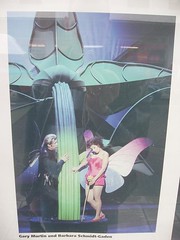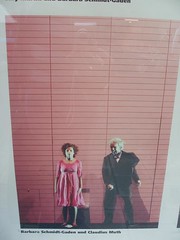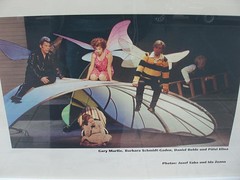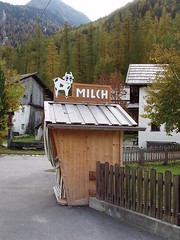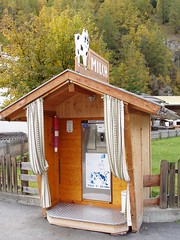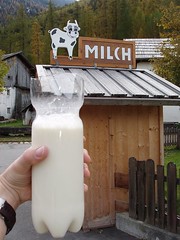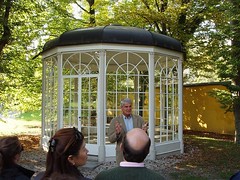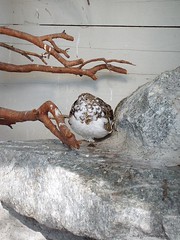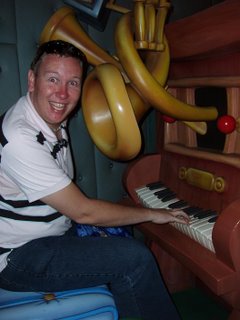Book - The Complete Polysyllabic Spree
Nick Hornby
See, I told you I was reading things quickly.
This book is not a novel but a collection of essays Nick Hornby wrote for an American literary magazine (
The Believer) about what he had read each month. My first experience of Hornby's writing was on a plane from LA to Melbourne after picking up
About A Boy in the airport bookshop. I loved his writing so much that I read the whole novel on that flight, which is pretty good considering my attention span! Since then I have read almost everything he has written as soon as it was published. His relaxed, conversational style and endless pop culture references really appeal to me. He is passionate about football and popular music and always includes them in his writing. I think one of my favourite works of his was
31 Songs in which he wrote a series of essays about his favourite songs and why they are so important to him. It gives such a great insight to his character, which I find very relatable. So a similar collection about books was irresistable in the bookshop (especially given how much I have been reading lately!)
The great news is that this book has restored my faith in Nick Hornby's writing. For some reason I found his last novel
A Long Way Down difficult to read and didn't make it very far through it at all. Surprising, since I normally can't put his books down. I suspect that my reaction to the novel had more to do with not really being in the right place or mood to read at the time, but either way, I was disappointed. These essays, however, are exactly what I love about his writing. The way his ideas tumble across each other like an overactive stream of thought that always tries to create half-baked analogies that he takes to a point and realises that they just don't work (and admits it with a lot of humour). The huge ironies that he always uses (and his common surprise that American readers sometimes take them as facts rather than the obviously overblown absurdities that they are!). The pop culture references (there are months where he doesn't read much at all because he's become too obsessed with a new band or because its been a big football month). If a were a writer (which I'm clearly not) this is how I would write.
He covers an enormous amount of literary territory in the 28 monthly essays from Dickens to graphic novels about growing up in the Iranian revolution, non-fiction about baseball to the letters of Chekhov (which are far more entertaining than I find any of his plays!). I think the point that he makes most clearly, and which I particularly like, is that reading should be a pleasure no matter what you are reading. That no-one should feel guilt for reading a "trashy novel" or feel obliged to read heavy literature all the time. That sometimes the things that are going on in a person's real life colour the way they view different books (like me and
A Long Way Down!) And sometimes the themes and ideas in a "trashy novel" can be far more affecting to a reader's life than the deepest literary novel.
Of course, like a very real person, (and this is another thing that I really like about his writing) he then later contradicts and reviews ideas and opinions that he has written in the column and freely admits that this is a development in his views that has surprised him. Surely, this is one of the great things about reading (and any great art) - it challenges our preconceived ideas and opinions and brings us to different opinions. After spending many pages justifying the literary greatness of "trashy novels" and being frustrated at the sometime inaccessibility of literary novels, he then writes this about literary novels and his change (development?) of opinion.
"I have always prized the accessible over the obscure, but after reading Housekeeping (Marilynne Robinson) I can see that in some ways, the easy, accessible novel is working at a disadvantage (not that Housekeeping is inaccessible, but it is deep, and dark and rich): it's possible to whiz through it without allowing it to even touch the sides, and a bit of side-touching has to happen if a book is going to be properly transformative. If you are so gripped by a book that you want to read it in the mythical single sitting, what chance has it got of making it all the way through the long march to your soul? It'll get flushed out by something else before it's even halfway there. The trouble is that most literary novels don't do anything but touch sides."(Note: To those of you that know me well, please note how well I must have enjoyed this book to even think of whipping out the post-it notes to mark a bit that I wanted to quote... either that or I am turning into the blogging geek that I fear)
One of the funny things he includes in his monthly column, is a list of books bought as well as the list of books read. He then goes and furiously defends his intentions behind buying each of the books, some of which he clearly admits he will never read. His description of the process involving the bookshelf of books he does intend to read, as opposed to the books that just get put straight onto the ordinary shelf, is very funny (and exactly what I do!) There is even one book that he reads because it gets rediscovered after his baby grabs it off the "will probably never read" shelf and he becomes interested in the book while putting it away. How many of us have that enormous pile of books by the bed that we will read someday?
A bonus about the book version (rather than the magazine articles) is that it includes some sections from some of the books referred to, which I found really interesting.
The last thing I really enjoyed about this book is that it's now given me a list of a whole lot of books that I want to read because of what Hornby has said about them. More for my reference than for the interest of anyone reading this blog, here is my list (again, made on the geeky post-it notes... what is happening to me??? I'm carrying them everywhere now... the original justification was to write down German words that I didn't understand or wanted to include in future vocabulary...)
How To Breathe Underwater - Julie Orringer
George and Sam: Autism in the Family - Charlotte Moore
True Notebooks - Mark Salzman
What Narcissism Means To Me - Tony Hoagland
Mystic River - Dennis Lehane
Chronicles: Volume 1 - Bob Dylan
Assassination Vacation - Sarah Vowell
Saturday - Ian McEwan
Gilead - Marilynne Robinson
Death and the Penguin - Andrey Kerkov
Then We Came To The End - Joshua Ferris
If anyone has read any of these, I'd love to hear what you think of them!



